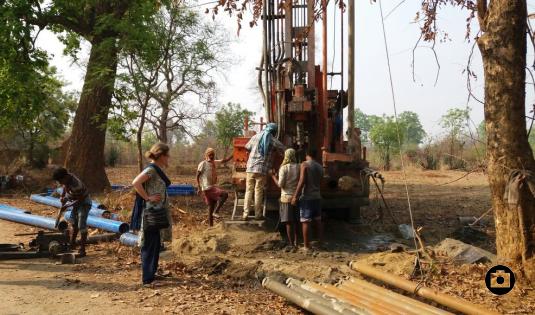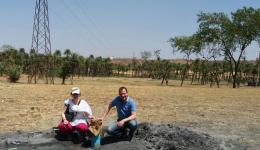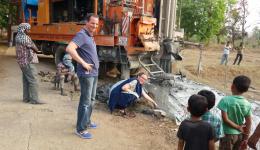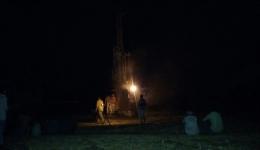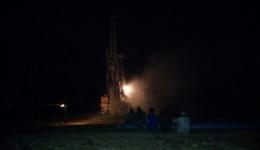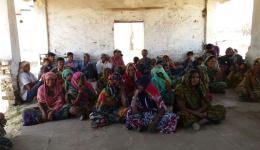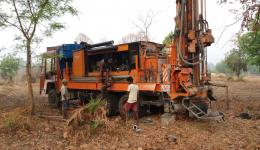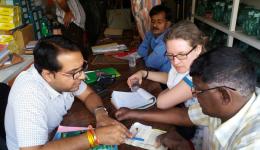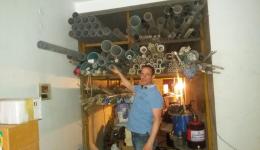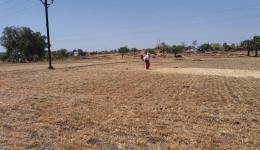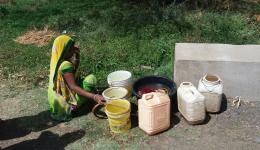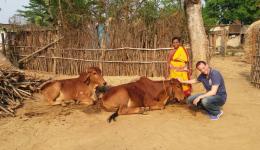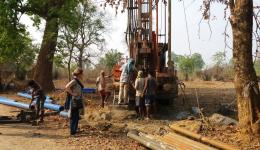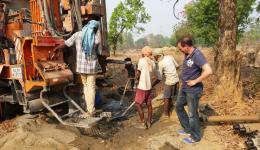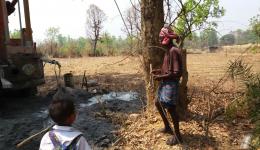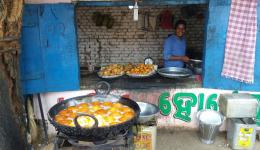Registered Nonprofit
Association for the Support
of Children and Needy
People Around the World
Unterstützung
Well drillings in leprosy villages
Sat., May 12, 2018 - 8:45pm, written by Katrin & Alexandra, published by Frank
Two wells for field irrigation successfully drilled in leprosy villages
End of March and beginning April Katrin and Guido were touring three different states in India. In two villages in Madhya Pradesh und Orissa inhabited by leprosy affected people two wells were successfully drilled!
We are happy to be able to report this to you since especially in the state of Madhya Pradesh, in central India, it has been very dry for years.
Here is Katrin’s report:
„A 200-meter-deep well for 70 families was drilled in the „Ananda Nagar Colony“. The inhabitants have enough land, however, due to lacking water for agricultural use they can hardly cultivate it. The whole area is very dry, even the rainy season sometimes fails.
The drilling here had to be unusually deep as the groundwater level in India’s dry regions has already dramatically sunk. Our team was very lucky since at the end of several hours of nightly drilling there was enough water for the future field irrigation.
For the families in the village this means being independent in the future, since the sale of crops is one of the best methods of “helping people to help themselves”.
From now on the new water resources will enable the people to provide themselves with self-harvested grain and vegetables (rice, soybeans, wheat, etc.) as well as to sell some of it.
In Orissa, the next state, the groundwater level looks better. Situated at the east coast, it is more humid which can be seen with the green nature in the current season. Sometimes it even rains outside the rainy season. Here, we visit a leprosy colony („Hatibari“, meaning „place of the elephants“).
The people have been given land by the government, but unfortunately, at these very places there is not enough water for a sufficient irrigation of their fields.
Due to the general groundwater level, we did not expect any problems with drilling. However, it quickly turns out that there are difficulties: The water found in 100-meter depth is not sufficient for irrigation.
After intensive discussion it was decided to have another try at another place. A man with a dowsing rod showed us a suitable place – according to his opinion – and again a huge truck drilled one pipe after the other into the ground producing a lot of dust and noise.
Shortly before reaching the 100 meter depth the situation looked not yet promising. We therefore spontaneously began to pray – what else could we do?
The tension was great, because we neither wanted to disappoint the villagers nor did we want to return home with the news that drilling had not been successful.
Suddenly we were told that the water pressure was now sufficient. What a blessing! Happy about the success we negotiated the cost of the drilling company's work as far down as possible and said goodbye."
Guido and Katrin visited some other villages on their tour and supplied them with building materials and roofs for dilapidated huts. They also visited Sunny in his homeless shelter in Delhi.
THANK YOU ALL at home who support the work of friends help friends with their contribution!
Katrin and Guido are happy that both well drillings in India turned out successful!
